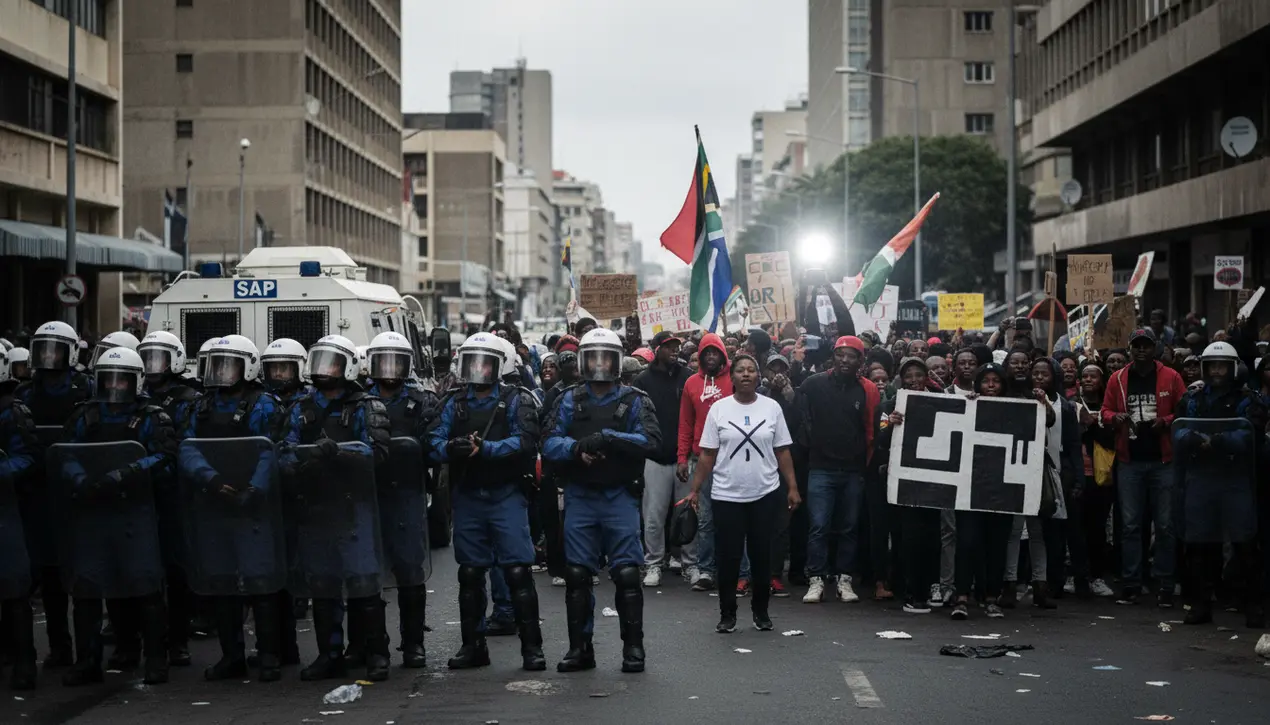
Politicsprotests & movementsMass Demonstrations
South Africa Deploys Police for G20 Summit Protests.
EM
Emma Wilson
1 hour ago7 min read1 comments
The streets surrounding the G20 summit venue are braced for impact, a volatile tableau of dissent where the world's economic elite will be met by a chorus of discontent from anti-capitalists, climate activists, women's rights campaigners, and anti-migrant factions. For a nation still grappling with the profound scars of apartheid, the deployment of police to manage these protests is a deeply symbolic act, layering the global spectacle with a painful, domestic resonance.The expected demonstrations are not merely about international policy disagreements; they are a stark mirror held up to South Africa's own enduring crises of poverty and staggering inequality, issues that the gleaming facade of a global summit cannot conceal. This is the central, agonizing tension: a government hosting a forum for global economic solutions while its own citizens prepare to protest the very systems that have, in their view, failed them at home.The anti-capitalist bloc, for instance, will not just be chanting about abstract theories of wealth distribution; they will be pointing to the nearly 40% unemployment rate and the fact that South Africa remains one of the most unequal societies on the planet, a statistic that mocks the promise of the post-Mandela era. Similarly, the climate activists' demands for global environmental justice are sharpened by local realities—from the water crises in Cape Town to the air pollution in the industrial heartland of Mpumalanga, where the needs of a coal-dependent economy clash violently with the right to a healthy environment.The women's rights campaigners march in a country with one of the world's highest rates of gender-based violence, their global slogans infused with the names of local victims, making their protest as much a domestic vigil as an international statement. And perhaps most dangerously, the anti-migrant groups, whose rhetoric often blames foreign nationals for straining an already broken system, add a combustible element to the mix, threatening to ignite the very xenophobic violence that has sporadically flared in townships across the country.The police force, itself a institution with a complex history of both oppression and public service, now stands in the middle, its operational success measured not just in maintained order but in its restraint. A heavy-handed response would be broadcast globally, damaging South Africa's hard-won international standing, yet a failure to contain violence could shatter the image of stability it seeks to project.Analysts are watching closely, noting that the security preparations reveal as much about the state of the nation as the protests themselves. The outcome of this policing operation will be a crucial indicator of whether South Africa's democratic institutions can navigate the fault lines of its society under the intense pressure of the world's gaze, a test with consequences that will long outlast the departure of the last world leader.
#featured
#South Africa
#police deployment
#G20 summit
#protests
#anti-capitalist
#climate activists
#inequality
Stay Informed. Act Smarter.
Get weekly highlights, major headlines, and expert insights — then put your knowledge to work in our live prediction markets.
Comments
Loading comments...
© 2025 Outpoll Service LTD. All rights reserved.